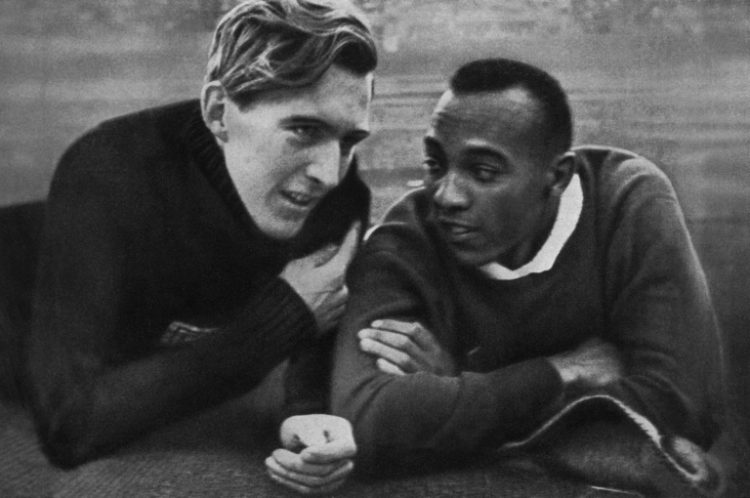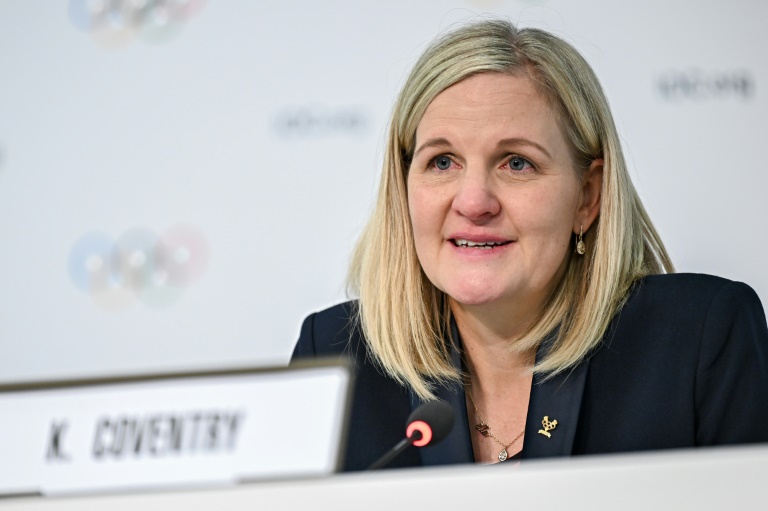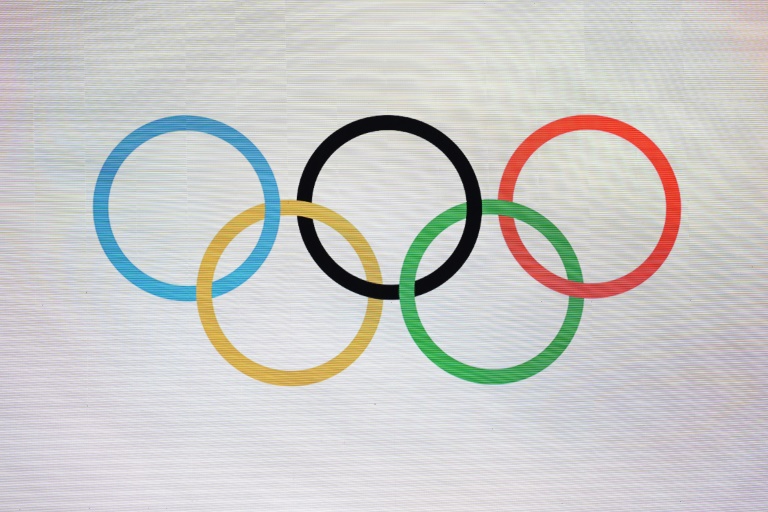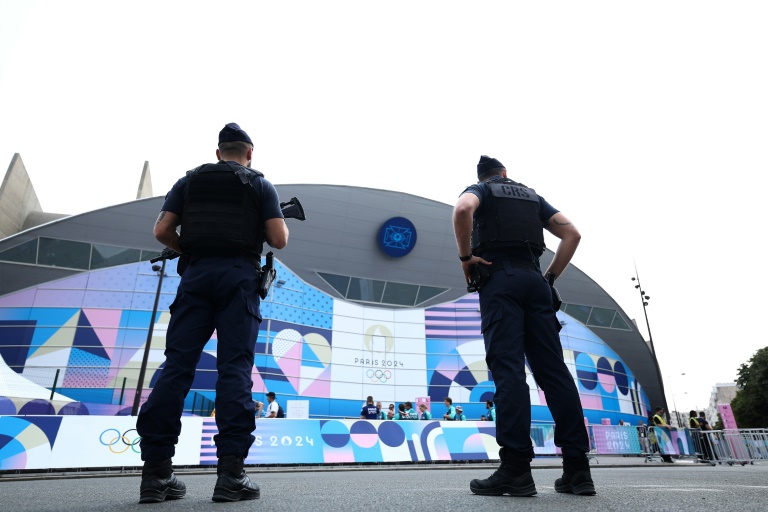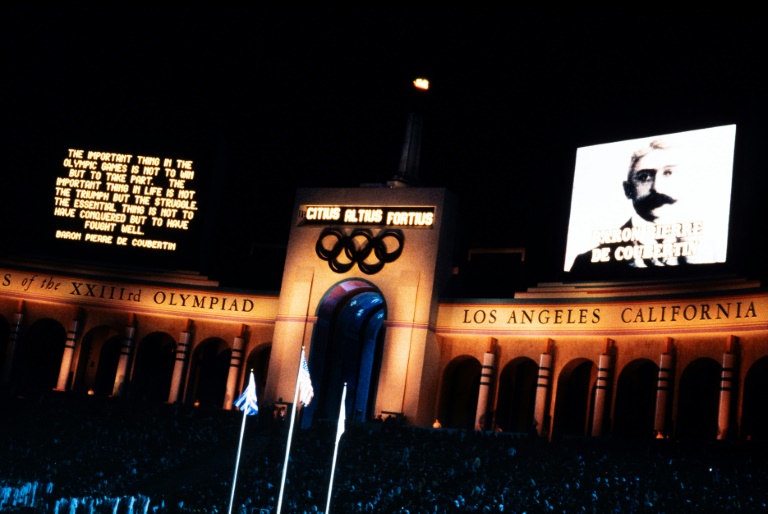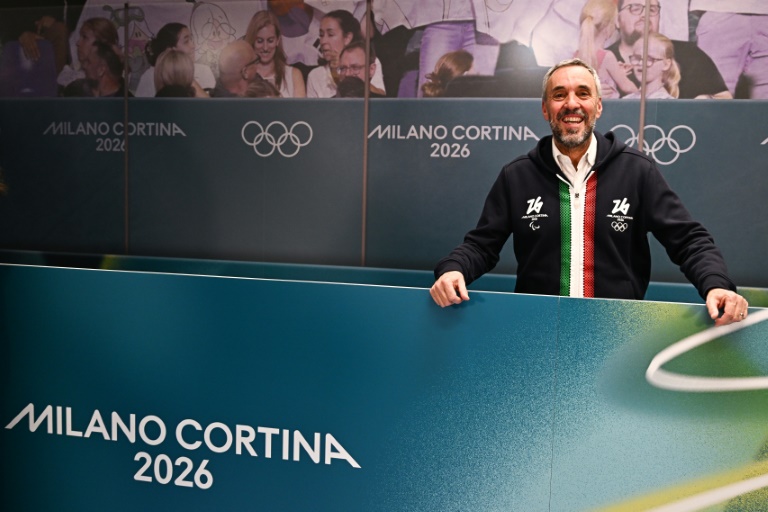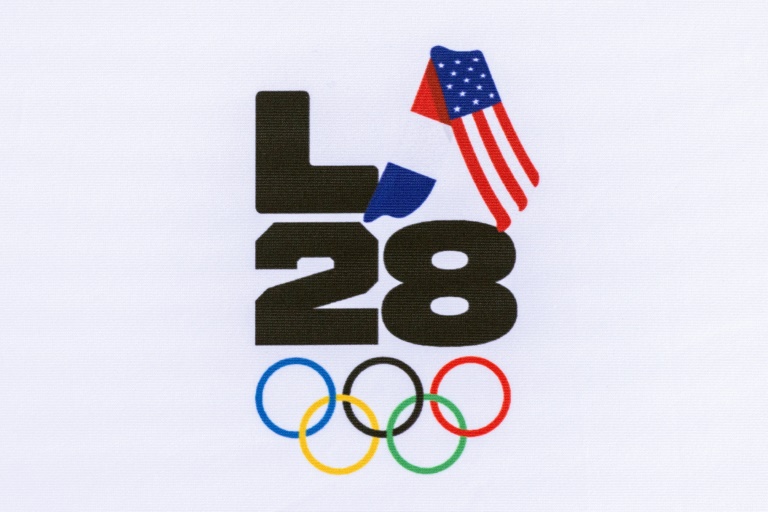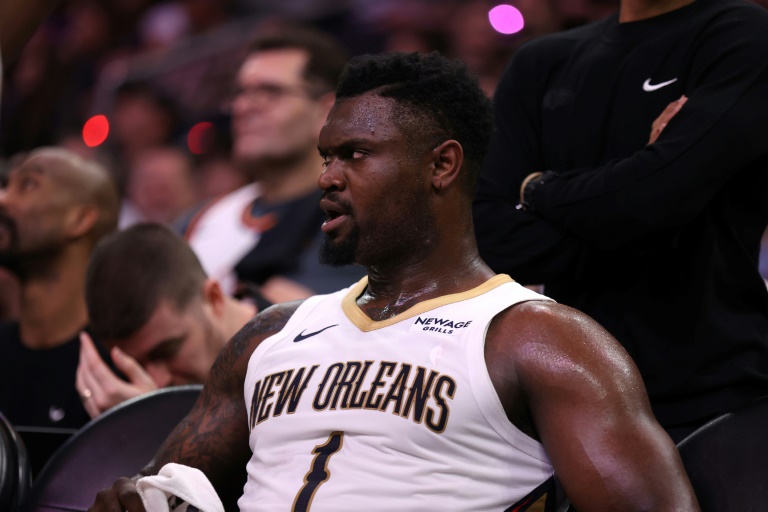Paris (AFP) – Luz Long’s mantra that “sometimes you just have to follow your heart” is exactly what the German long jumper did in defying Nazi leaders by hugging Jesse Owens in one of sport’s most iconic moments. Not only did Long embrace Owens after the American won Olympic gold and the German took silver in Berlin in 1936, he had also supposedly helped him qualify for the final. Owens was in danger of failing to secure qualification at the Olympic Stadium when Long is said to have indicated to him where to lay his towel as a marker — but for that, the American could have missed out on the four Olympic gold medals.
For the Nazis, a black athlete getting the better of a representative of what they promoted as the superior white Aryan race was bad enough, but for a German to show friendship towards Owens was a slap across their face. “This gesture, under the eyes of Adolf Hitler and other prominent Nazis who believed in the ‘inferiority’ of non-Aryan ‘races,’ has rightly been celebrated for many decades as a triumph of humanity over racism and inhumanity,” Long’s granddaughter Julia Kellner-Long told AFP.
Owens returned to the United States and despite his achievements still had to sit at the back of the bus in that segregated era and endure other humiliations imposed on blacks by whites. Things were little better for his gallant German rival. “After the Games, Luz received a phone call from the highest authority, Nazi deputy leader Rudolf Hess, who ordered him ‘never to embrace a Negro again,'” said Kellner-Long.
Neither Kellner-Long nor her father Kai met Long as he was killed in action in Sicily on July 13, 1943 — his last letter home was written on May 29, the day after his second son was born. “I would give up all the medals to have my father back,” said Kai, who was to lose his younger brother Wolfgang to meningitis in 1944. Kellner-Long’s grandmother Gisela spent seven years trying to ascertain whether he had survived the war.
“Luz was not a constant topic in our family,” admitted Kellner-Long, whose father did meet Owens twice. “There was no scene where the daughter sits on her father’s knee and hears the ‘heroic story’ of her grandfather.” However, in 2004 all that changed when Kai suggested Kellner-Long represent the family along with Gina Hemphill-Strachan, a granddaughter of Owens’s, in inaugurating the refurbished Olympic Stadium in Berlin.
Kellner-Long did not realize how much her father’s and Owens’s story meant to Germans until 80,000 spectators applauded as they lit the flame and her knees “trembled.” “What energy!” she said. “They were both there: Jesse and Luz. It was an indescribably great experience.”
– ‘Not racially conscious’ –
Kellner-Long said his gesture sets an example to others today. “This story does not die,” she said. “It is like a fire. A beacon of hope.” To this day, Luz’s story inspires people around the world and gives hope. “Luz’s humanity, his courage, and his integrity show that personal stance makes the difference.” Kellner-Long’s passion for the story and a desire to bury some urban myths has led her to write “the true and complete story of my grandfather.” She says that from the moment he befriended Owens, her father became a figure of suspicion to the Nazis.
“From that moment on, Luz was classified by the Nazis as not racially conscious and was closely monitored over the years to ensure his political correctness,” said Kellner-Long, whose father died in 2021. The historic moment also resonates to this day with Owens’s family — who remain close to the Longs — as the American’s grandson Stuart Rankin related in the foreword to a 2015 book. Rankin acknowledges Owens’s sporting achievements but says that is not what left the biggest impression. “The image that is forever etched into my mind is of a smiling Luz Long being the first to congratulate my grandfather as he emerged from the long jump pit.”
© 2024 AFP

